
 |
|
|
|
|
|
Following his exit from Deep Purple in August 1992, Joe Lynn Turner did not hang around long before getting back to work. He was coaxed out on the road in October 1992, to sing shows for ex-Alice Cooper guitarist Al Pitrelli's project CPR (Coven, Pitrelli, Reilly). CPR had released their eponymous album the same year, featuring a number of rock illuminati making guest cameos - including Steve Morse.
During 1993 Joe put together his own live group, 'The Joe Lynn Turner Band', who initially restricted themselves to shows within reach of home on the east coast - including a few in Ritchie Blackmore's neck of the woods. The band comprised Al Pitrelli and John (O')Reilly from CPR, ex Alice Cooper bassist Greg Smith, and ex-Kiss keyboard player Gary Corbett - who's other claim to fame was co-writing Cyndi Lauper's controversial third hit ''She Bop' in 1984. Pitrelli had been in Joe's previous solo band Jolt, which was in its beginnings when the call from Deep Purple came in 1989.

Al Pitrelli left to work with Dee Snider's Widowmaker in late 1993, and was replaced by Karl Cochran, who during 1994 also doubled as bass player in Kiss guitarist Ace Frehley's solo band.
When the band began to expand their touring beyond home turf (also taking in the US mid-west), their name was changed to accommodate the 'All Star Band' extension. In a way the shows were a template for much of Joe's live solo career right up to the present day, with a set list largely drawn from his days on stage with Rainbow and Deep Purple days, including 'Can't Happen Here', 'Highway Star' and 'Smoke On The Water'. Ironically Ritchie Blackmore poached members of the band for his reformed Rainbow in 1994, first O'Reilly (who was still able to tour with Joe before the line-up was finalised) and later Smith.

Mothers Army was a studio-project which began life as a session recording for Night Ranger guitarist Jeff Watson. When ex Rainbow bassist Bob Daisley was brought onboard the sessions became the beginnings of a new band, initially called Lone Ranger. A tour of Japan pointed to where future success lay, but on their return it was decided to replace the incumbent vocalist with Joe Lynn Turner and rename the band Mothers Army. In the face of the grunge movement it became a studio-only project.
The band recorded three albums, all of which were released in Japan only, where the market for 'hair metal' was still in some semblance of health. The first album 'Mothers Army' met with some success, but was not followed up until 1997's 'Planet Earth', which took a lurch in style from the standard heavy rock of its predecessor, into Floydian concept territory. That proved enough for Appice, who was replaced by ex-Whitesnake player Aynsley Dunbar for the third and final album 'Fire On The Moon' in 1998, which returned to the more straightforward approach of the debut.
Mothers Army was just the first of a number of side-projects which Joe has run simultaneously with his solo work, including HTP and Big Noize. A third avenue of work was his involvement with tribute albums, the first of which was 'Smoke on the Water: Tribute to Deep Purple' on which both Joe and Glenn Hughes contributed vocals. (The guitarists included future Whitesnake member Reb Beach). It was followed by 'Black Night: Deep Purple Tribute (According To New York) in 1995, and Yngwie Malmsteen's 'Inspirations' in 1996, on which Joe sang 'Pictures of Home' and 'Demon's Eye'.

 |
|
|
|
|
|
In 1995 Joe Lynn Turner recorded and released his second solo album (after 1985's 'Rescue You'). 'Nothing's Changed' saw the return of CPR and Joe Lynn Turner All Star Band guitarist Al Pitrelli, who co-produced and played guitar. Joe's rhythm section returned from their Rainbow duties (though O'Reilly was just about to be be relieved of his), while keyboard duties were shared by Gary Corbett and another Alice Cooper veteran Derek Sherinian (who later joined Dream Theater, and more recently Black Country Communion).
The album did not sell well, but was the first of a long string of solo releases by Joe - all containing polished 1980s-style rock, and featuring many of the same players and contributors. Indeed his soon to be producer Bob Held helped co-write two tracks on 'Nothing's Changed'. Joe was kept busy in the recording studio fro the rest of the decade, including contributing vocals to Bulgarian guitarist Nikolo Kotzev's Brazen Abbot albums 'Eye Of The Storm' in 1996, and 'Bad Religion' in 1997. (Joe also sang on Kotzev's 'Nostradamus' rock opera in 2001).
In 1997 Joe also brought out the first of two 'Pin Ups' style solo albums which featured covers of favourite and influential tracks. The first, 'Under Cover', included 'Hush'. Positive sales in Japan prompted a follow up two years later. In 1998 Joe released an album of original compositions. 'Hurry Up And Wait' including a version of the Deep Purple 'Slaves & Masters' track 'Too Much is Not Enough', credited to Turner/Pitrelli/Held. Musicians on that track (and indeed most of the album) still included two latter day Rainbow players. Greg Smith played throughout, and while John O'Reilly's place was taken by New York based session player Kenny Kramme, Paul Morris debuted as part of Joe's studio band in place of Gary Corbett.

 |
|
|
|
|
|
Joe's studio rhythm section remained intact for 1999's 'Under Cover 2', which included takes of Deep Purple's 'Lady Double Dealer', Whitesnake's 'Fool For Your Loving' and Rainbow's 'Lost In Hollywood'. Joe's old friend Tony Bruno was the main guitarist, although Japanese guitarist Akira Kajiyama also played, having been brought to Joe's attention when the two performed on Japanese Rainbow tribute album 'Niji Densetsu' in 1998.
Joe continued to release albums at a frequency not usually seen since the early 1980s. 2000 saw the release of 'Holy Man'. The title track by the way, is not the same as the song on Deep Purple's 'Stormbringer'. Kajiyama was now main guitarist, although there were a number of other contributors, including old colleagues Al Pitrelli and Karl Cochran, and future Black Country Communion player Joe Bonamassa. The bass spot was taken by Eric Czar, who later went on to play in Bonamassa's solo band.
With the market for 1980s style AOR having retreated mainly to Japan, it was there that Joe's albums made the biggest impact. In October 2000, wIth Kajiyama on board, he enjoyed a successful Japanese tour made all the more significant by the appearance of Glenn Hughes on bass, who performed some of his own back catalogue. The tour lead to the formation of the Hughes Turner Project in 2002.. Before then, Joe managed to fit in another studio album. 'Slam' was released in 2001, and dispensed with multiple guest musicians and writers. It featured a settled band line-up of Kramme, Czar, Kajiyama and Morris. All of the tracks were collaborations between Turner and Kajiyama, who later played on the 2002 and 2004 Japanese tours by the Hughes Turner Project.
 click above to view the next page
click above to view the next page
.... Joe Lynn Turner, solo album discography 1995-2001 ....
 |
|
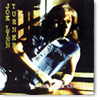 nothing's changed nothing's changed
September 1995 - studio album
Joe Lynn Turner's first post-Deep Purple solo album, featuring ex-Rainbow players Greg Smith and John O'Reilly. |
|
 |
|
|
 |
|
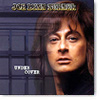 under cover under cover
February 1997 - studio album
Newly recorded favourites and influences. Includes a re-working of Rainbow's 'Street Of Dreams'. |
|
 |
|
|
 |
|
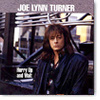 hurry up and wait hurry up and wait
May 1998 - studio album
More melodic hard rock, featuring a new version of 'Too Much Is Not Enough' from Deep Purple's 'Slaves & Masters'. |
|
 |
|
|
 |
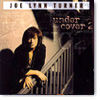 under cover 2 under cover 2
March 1999 - studio album
Second collection of covers, including Deep Purple, Rainbow and Whitesnake tracks. |
 |
|
 |
|
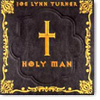 holy man holy man
August 2000 - studio album
Heavier than its predecessors, and with a more Hammond sound courtesy of ex-Rainbow player Paul Morris. Other players include Joe Bonamassa, who also gets three writing credits. |
|
 |
|
|
|
.... Mothers Army album discography 1993-1998 ....
 |
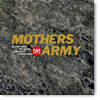 mothers army mothers army
1993 - studio album
Studio project featuring Turner with ex-Rainbow bassist Bob Daisley, Night Ranger guitarist Jeff Watson, and ex Vanilla Fudge drummer Carmine Appice. |
 |
|
 |
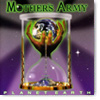 planet earth planet earth
1997 - studio album
While the first album was straightforward melodic rock, this one (written by Daisley and Watson) is more ethereal. Not Appice's cup of tea - he left after recording it. |
 |
|
 |
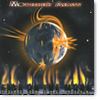 fire on the moon fire on the moon
1998 - studio album
Possibly the best of the three albums, a return to hard rock. Turner's first writing credits with the band. Aynsley Dunbar on drums. |
 |
|
|
|